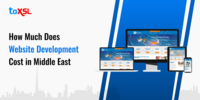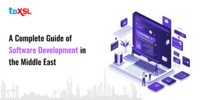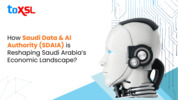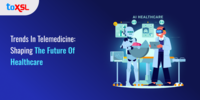- Nov 28, 2025
- Medical
- 636
Share this post on:
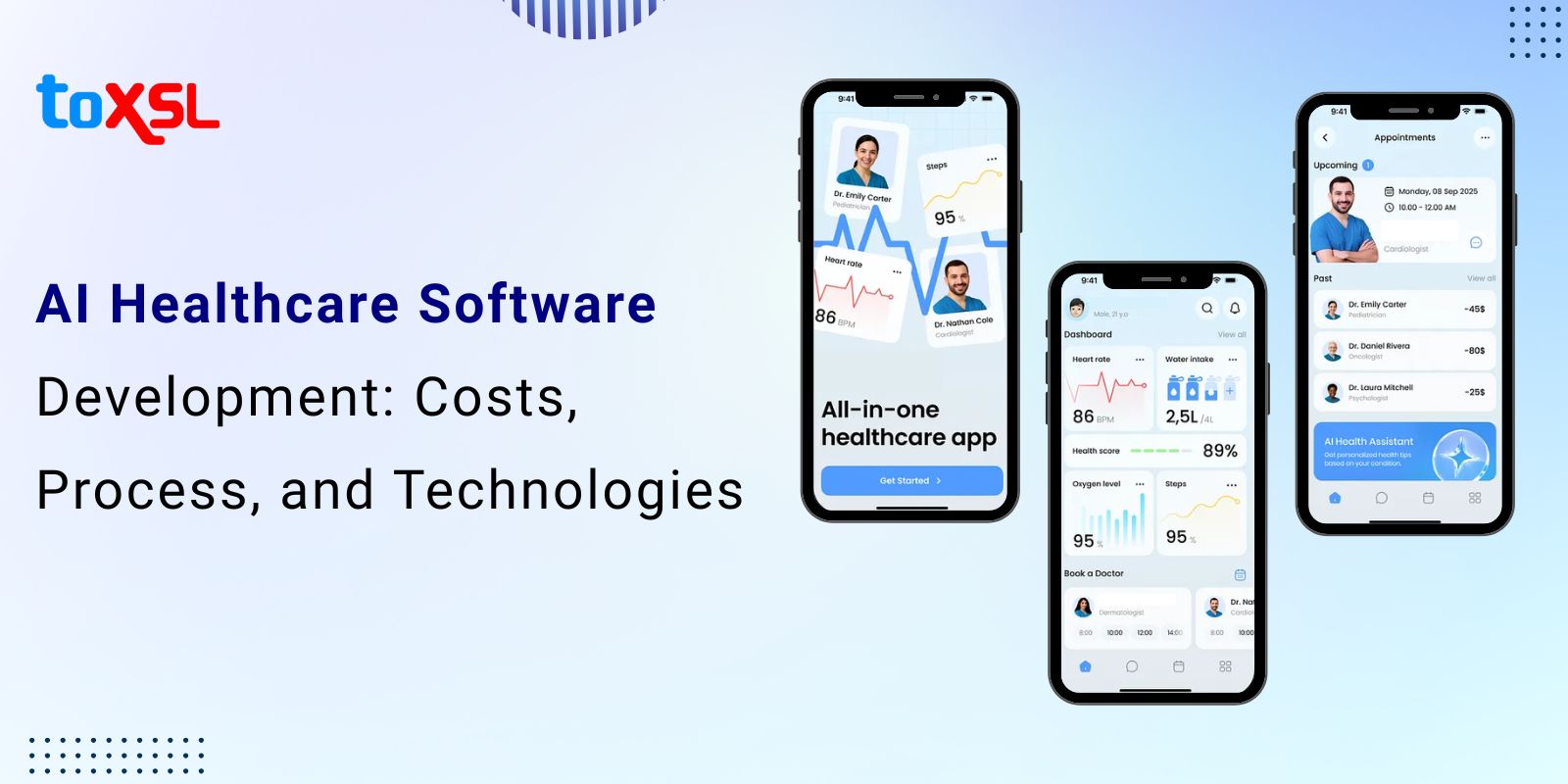
In the rapidly evolving world of healthcare, technology has become the cornerstone for improving patient care, streamlining operations, and reducing costs. Among the technological innovations, AI in healthcare has emerged as a transformative force, enabling medical professionals to make data-driven decisions, optimize workflows, and enhance patient outcomes. At ToXSL Technologies, we specialize in AI Healthcare Software Development, offering customized solutions tailored to the unique needs of hospitals, clinics, and healthcare startups.
This blog will explore the entire landscape of AI Healthcare Software, including its development process, technologies involved, costs, benefits, and the future outlook for healthcare providers.
Key Takeaways
- AI in healthcare enhances diagnostic accuracy and enables early disease detection.
- AI Healthcare Software streamlines workflows, reducing administrative burden and errors.
- Personalized treatment plans powered by AI improve patient outcomes and satisfaction.
- Investing in AI solutions can significantly reduce operational and clinical costs.
- Advanced AI technologies like machine learning, NLP, and computer vision drive healthcare innovation.
Understanding AI in Healthcare
Artificial intelligence in healthcare refers to the use of advanced algorithms and machine learning techniques to mimic human intelligence in medical applications. It involves the analysis of complex medical data to assist clinicians in diagnosing diseases, predicting patient outcomes, personalizing treatments, and automating repetitive tasks.
AI can process vast amounts of structured and unstructured data, such as electronic health records (EHRs), medical imaging, genomics, and patient history, to deliver actionable insights. The adoption of AI in healthcare has shown significant promise in areas like early disease detection, remote patient monitoring, predictive analytics, and personalized treatment planning.
Types of AI Healthcare Software
At ToXSL Technologies, we develop a wide range of AI Healthcare Software solutions, depending on the needs of our clients. These include:
1. Diagnostic AI Software
Diagnostic AI software helps physicians accurately detect and diagnose diseases by analyzing medical imaging such as X-rays, MRIs, CT scans, and ultrasounds. By leveraging deep learning algorithms, AI can identify patterns that are often missed by the human eye, reducing errors and improving early disease detection.
2. Predictive Analytics Platforms
Predictive analytics in healthcare uses AI to forecast patient outcomes, such as the likelihood of readmission, disease progression, or treatment response. AI in healthcare software can integrate with hospital databases to provide predictive insights, enabling proactive interventions and better resource management.
3. AI-Powered Virtual Health Assistants
Virtual assistants powered by AI can interact with patients, answer queries, schedule appointments, and provide medication reminders. They help reduce the burden on healthcare staff while improving patient engagement and satisfaction.
4. Personalized Treatment Planning Tools
Personalized medicine is revolutionized with AI by analyzing patient data, genetics, and treatment history to suggest individualized care plans. AI Healthcare Software Development ensures that treatment protocols are tailored to each patient, improving outcomes and reducing unnecessary procedures.
5. Robotic Surgery Assistance Systems
AI-assisted robotic surgery tools provide precision and accuracy during complex procedures. Machine learning algorithms analyze surgical data to guide robotic instruments, enhancing safety, minimizing invasiveness, and improving recovery times.
6. Administrative AI Solutions
AI in healthcare is not limited to clinical applications. Administrative tools automate billing, claims processing, scheduling, and inventory management, saving costs and reducing human error in hospital operations.
Benefits of AI Healthcare Software
The integration of AI in healthcare software brings transformative advantages for both healthcare providers and patients. From improving diagnostic accuracy to optimizing operational efficiency, AI Healthcare Software Development enables organizations to deliver high-quality care while reducing costs and enhancing patient experiences. Let’s explore the key benefits in detail:
1. Enhanced Diagnostic Accuracy
Accurate diagnosis is critical in healthcare, as early and precise detection of diseases can save lives. AI algorithms in AI Healthcare Software analyze complex medical data, including imaging and patient history, to support physicians in making informed decisions.
- Detects subtle patterns in medical images that may be missed by human eyes.
- Reduces misdiagnosis and improves early disease detection.
- Supports evidence-based decision-making for complex medical cases.
2. Efficient Workflow Management
Healthcare organizations often face administrative and operational challenges that can slow down patient care. AI in healthcare software automates routine tasks, allowing staff to focus on critical medical interventions.
- Automates appointment scheduling, billing, and record management.
- Minimizes human errors in repetitive administrative tasks.
- Streamlines hospital operations, saving time and resources.
3. Personalized Patient Care
Patients respond differently to treatments, and personalized care is key to improving outcomes. AI-driven tools in healthcare analyze patient-specific data to create tailored treatment plans.
- Suggests individualized treatment options based on patient history and genetics.
- Monitors patient progress and recommends adjustments in real-time.
- Enhances overall treatment effectiveness and patient satisfaction.
4. Cost Reduction
Implementing AI Healthcare Software helps healthcare organizations reduce operational and clinical costs. Automation, predictive insights, and optimized resource management contribute to overall financial efficiency.
- Minimizes unnecessary medical procedures and hospital visits.
- Reduces administrative overhead through automation.
- Optimizes resource allocation, such as staff and medical equipment.
5. Early Detection and Prevention
Preventive care is a cornerstone of modern medicine. AI in healthcare enables early identification of potential health risks, allowing timely intervention and reducing long-term complications.
- Predicts disease progression using patient data and analytics.
- Supports preventive screenings and early treatment plans.
- Improves management of chronic conditions through continuous monitoring.
6. Improved Patient Engagement
Active patient involvement in their own healthcare is essential for better outcomes. AI-powered solutions such as virtual assistants and chatbots enhance communication and engagement.
- Provides real-time answers to patient queries and guidance.
- Sends automated reminders for medications, appointments, and follow-ups.
- Educates patients about health conditions, treatments, and preventive measures.
Technologies Used in AI Healthcare Software
ToXSL Technologies leverages a range of advanced technologies in AI Healthcare Software Development, ensuring robust, scalable, and secure solutions:
1. Machine Learning (ML)
Machine learning algorithms analyze historical and real-time data to identify patterns, make predictions, and optimize decision-making processes in healthcare.
2. Deep Learning
Deep learning, a subset of ML, utilizes neural networks to analyze complex medical images and unstructured data, enabling accurate diagnosis and treatment recommendations.
3. Natural Language Processing (NLP)
NLP allows AI systems to understand, interpret, and process human language, enabling applications like voice-enabled virtual assistants, EHR data extraction, and automated medical documentation.
4. Computer Vision
Computer vision technology is used to interpret medical images, detect abnormalities, and assist in surgical procedures with high precision.
5. Robotics and Automation
Robotics combined with AI algorithms provides assistance in surgeries, patient monitoring, and hospital logistics, enhancing accuracy and efficiency.
6. Cloud Computing
Cloud infrastructure enables AI healthcare applications to store and process large datasets securely, ensuring accessibility, scalability, and compliance with healthcare regulations like HIPAA.
7. Big Data Analytics
Big data platforms allow healthcare organizations to analyze massive volumes of structured and unstructured data, facilitating predictive analytics, patient insights, and population health management.
AI Healthcare Software Development Process
Developing high-quality AI Healthcare Software requires a structured and systematic approach. At ToXSL Technologies, we follow a comprehensive process to ensure that our AI solutions are accurate, secure, and tailored to meet the specific needs of healthcare providers. From understanding client requirements to deployment and continuous monitoring, every step is crucial for delivering effective and reliable AI solutions.
1. Requirement Analysis
The first step in AI Healthcare Software Development is understanding the unique needs of the healthcare organization. This involves identifying the goals, challenges, and target users for the software.
- Determine the scope of AI implementation, whether for diagnostics, predictive analytics, or administrative automation.
- Identify the types of data sources available, such as EHRs, medical imaging, or lab reports.
- Define regulatory and compliance requirements to ensure the software adheres to HIPAA, GDPR, and other standards.
2. Data Collection and Preprocessing
Data is the backbone of AI systems. High-quality, accurate, and structured data is essential for training effective AI models.
- Collect data from multiple sources, including electronic health records, wearable devices, and medical imaging systems.
- Clean and normalize the data to remove errors, duplicates, or inconsistencies.
- Anonymize sensitive patient information to maintain privacy and comply with healthcare regulations.
3. Model Selection and Development
Once the data is ready, the next step is selecting and developing the AI models best suited for the intended application.
- Choose appropriate algorithms such as machine learning, deep learning, natural language processing, or computer vision.
- Train AI models using historical and real-time healthcare data for accurate predictions and insights.
- Continuously refine the models to improve accuracy and reduce biases.
4. Integration with Existing Systems
Healthcare organizations often have multiple systems, including hospital management software, telemedicine platforms, and EHRs. Seamless integration is crucial for efficiency.
- Connect the AI software with existing infrastructure to allow real-time data flow.
- Ensure interoperability with different platforms and devices used within the healthcare ecosystem.
- Implement secure APIs to maintain data integrity and smooth communication between systems.
5. Testing and Validation
Testing is critical in AI Healthcare Software Development to ensure safety, accuracy, and reliability.
- Conduct rigorous testing using both historical datasets and real-world scenarios.
- Validate model outputs with clinical experts to ensure medical accuracy.
- Perform stress testing and quality assurance to identify and fix performance issues before deployment.
6. Deployment
After successful testing, the AI healthcare solution is deployed in the operational environment. Deployment includes setting up user interfaces, server infrastructure, and security protocols.
- Launch the AI software in hospitals, clinics, or telemedicine platforms.
- Ensure all security measures, such as encryption and access control, are implemented.
- Provide initial training to healthcare staff for smooth adoption and use.
7. Monitoring and Maintenance
Even after deployment, AI healthcare solutions require ongoing monitoring to ensure optimal performance and compliance with regulations.
- Continuously track AI model performance and accuracy using live data.
- Update the software regularly to adapt to new healthcare data, regulations, and technology advancements.
- Provide maintenance and technical support to resolve any issues promptly.
Cost of AI Healthcare Software Development
Investing in AI Healthcare Software is a significant decision for healthcare organizations, as it requires a blend of advanced technology, skilled professionals, and compliance with healthcare regulations. The cost of AI Healthcare Software Development varies depending on several factors, including software complexity, data requirements, integration needs, and long-term maintenance.
Understanding these costs helps healthcare providers plan their budget efficiently and ensures a higher return on investment by delivering solutions that enhance patient care, streamline operations, and reduce overall expenses.
At ToXSL Technologies, we provide customized AI Healthcare Software solutions that balance cost, performance, and innovation. Below, we break down the main cost components and their impact on total development expenses:
Key Factors Affecting Costs
Complexity of AI Models
The type of AI solution being developed has a direct impact on costs. Basic predictive analytics tools are more affordable, while advanced diagnostic or robotic-assisted systems require more investment due to complex algorithms and specialized development skills.
Data Requirements
High-quality, structured, and comprehensive datasets are crucial for training AI models. Costs increase with the need for data collection, preprocessing, cleaning, and labeling.
Regulatory Compliance
Healthcare software must comply with HIPAA, GDPR, and other regional healthcare regulations. Ensuring compliance involves additional resources for data security, encryption, and auditing.
Integration with Existing Systems
Integrating AI solutions with electronic health records (EHRs), hospital management systems, or telemedicine platforms can increase development costs depending on the system’s complexity and compatibility.
Customization and Scalability
Tailored solutions designed for specific workflows, specialized departments, or large-scale deployment may require additional development effort, impacting the overall cost.
Maintenance and Support
Continuous support, AI model retraining, and system updates are essential for sustaining performance, accuracy, and regulatory compliance. This is an ongoing cost that must be factored into the total budget.
Type of AI Healthcare Software | Features/Complexity | Estimated Development Cost (USD) |
|---|---|---|
Basic Predictive Analytics Tools | Patient risk prediction, simple dashboards, standard reports | $20,000 – $50,000 |
Diagnostic AI Software | Medical imaging analysis, deep learning models, advanced analytics | $80,000 – $150,000 |
AI-Powered Virtual Health Assistants | Chatbots, voice assistants, patient communication automation | $40,000 – $100,000 |
Personalized Treatment Planning Tools | Genetic analysis, treatment optimization, data-driven recommendations | $100,000 – $180,000 |
Robotic Surgery Assistance Systems | AI-guided robotic instruments, surgical precision enhancement | $200,000+ |
Administrative AI Solutions | Billing automation, claims processing, staff scheduling | $30,000 – $70,000 |
Future of AI in Healthcare
The future of AI Healthcare Software is highly promising, with innovations transforming patient care, diagnostics, and hospital operations:
Remote Patient Monitoring: AI-powered wearable devices and telehealth platforms will allow continuous health tracking and early intervention.
Personalized Medicine: Genomics and AI integration will enable highly tailored treatment plans.
Clinical Decision Support Systems: AI will assist doctors with real-time, data-driven recommendations.
Predictive Population Health: AI can identify trends in population health, enabling preventive measures and policy planning.
Enhanced Patient Engagement: Chatbots and virtual assistants will provide round-the-clock support, education, and follow-up care.
At ToXSL Technologies, we are committed to staying at the forefront of AI innovations to provide healthcare organizations with cutting-edge solutions that drive efficiency, safety, and improved patient outcomes.
Conclusion
AI Healthcare Software Development is no longer an option but a necessity for modern healthcare organizations. From diagnostics to predictive analytics, virtual assistants to robotic surgery, AI in healthcare is reshaping the way medical professionals deliver care. At ToXSL Technologies, we specialize in creating customized AI Healthcare Software solutions that meet the unique needs of hospitals, clinics, and healthcare startups. Our team combines deep technical expertise with healthcare domain knowledge to deliver robust, scalable, and secure AI solutions. By partnering with us, healthcare providers can leverage the full potential of artificial intelligence in healthcare, optimize operations, reduce costs, and ultimately improve patient outcomes. Investing in AI-powered solutions today is investing in a healthier and more efficient tomorrow. Trust ToXSL Technologies to be your partner in building the future of healthcare with AI.
FAQ's
1. How does AI Healthcare Software ensure patient data privacy and security?
AI Healthcare Software incorporates encryption, secure cloud storage, access control, and anonymization techniques, complying with HIPAA and GDPR standards. Continuous monitoring and regular audits prevent unauthorized access and maintain confidentiality of sensitive patient information.
2. Can AI Healthcare Software integrate with existing hospital systems?
Yes, AI Healthcare Software is designed for seamless integration with electronic health records, hospital management systems, telemedicine platforms, and diagnostic devices, ensuring interoperability, real-time data flow, and a unified healthcare ecosystem for efficient operations.
3. What is the typical timeline for developing AI Healthcare Software?
The development timeline depends on software complexity, data availability, integration requirements, and regulatory compliance. Simple AI solutions may take 3–6 months, while advanced diagnostic or robotic systems can require 12–18 months from planning to full deployment.
4. What role do IoT devices play in AI Healthcare Software?
IoT devices, such as wearable sensors, smart monitors, and connected medical equipment, provide real-time health data to AI Healthcare Software. This data enables continuous patient monitoring, early anomaly detection, predictive insights, and improved decision-making for personalized care.
